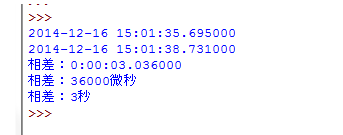python用模块zlib压缩与解压字符串和文件的方法
python中zlib模块是用来压缩或者解压缩数据,以便保存和传输。它是其他压缩工具的基础。下面来一起看看python用模块zlib压缩与解压字符串和文件的方法。话不多说,直接来看示例代码。
例子1:压缩与解压字符串
import zlib message = 'abcd1234' compressed = zlib.compress(message) decompressed = zlib.decompress(compressed) print 'original:', repr(message) print 'compressed:', repr(compressed) print 'decompressed:', repr(decompressed)
结果
original: 'abcd1234' compressed: 'x\x9cKLJN1426\x01\x00\x0b\xf8\x02U' decompressed: 'abcd1234'
例子2:压缩与解压文件
import zlib
def compress(infile, dst, level=9):
infile = open(infile, 'rb')
dst = open(dst, 'wb')
compress = zlib.compressobj(level)
data = infile.read(1024)
while data:
dst.write(compress.compress(data))
data = infile.read(1024)
dst.write(compress.flush())
def decompress(infile, dst):
infile = open(infile, 'rb')
dst = open(dst, 'wb')
decompress = zlib.decompressobj()
data = infile.read(1024)
while data:
dst.write(decompress.decompress(data))
data = infile.read(1024)
dst.write(decompress.flush())
if __name__ == "__main__":
compress('in.txt', 'out.txt')
decompress('out.txt', 'out_decompress.txt')
结果
生成文件
out_decompress.txt out.txt
问题——处理对象过大异常
>>> import zlib >>> a = '123' >>> b = zlib.compress(a) >>> b 'x\x9c342\x06\x00\x01-\x00\x97' >>> a = 'a' * 1024 * 1024 * 1024 * 10 >>> b = zlib.compress(a) Traceback (most recent call last): File "<stdin>", line 1, in <module> OverflowError: size does not fit in an int
总结
以上就是关于python模块zlib压缩与解压的全部内容,希望本文的内容对大家学习或者使用python能有一定的帮助,如果有疑问大家可以留言交流,谢谢大家对【听图阁-专注于Python设计】的支持。
